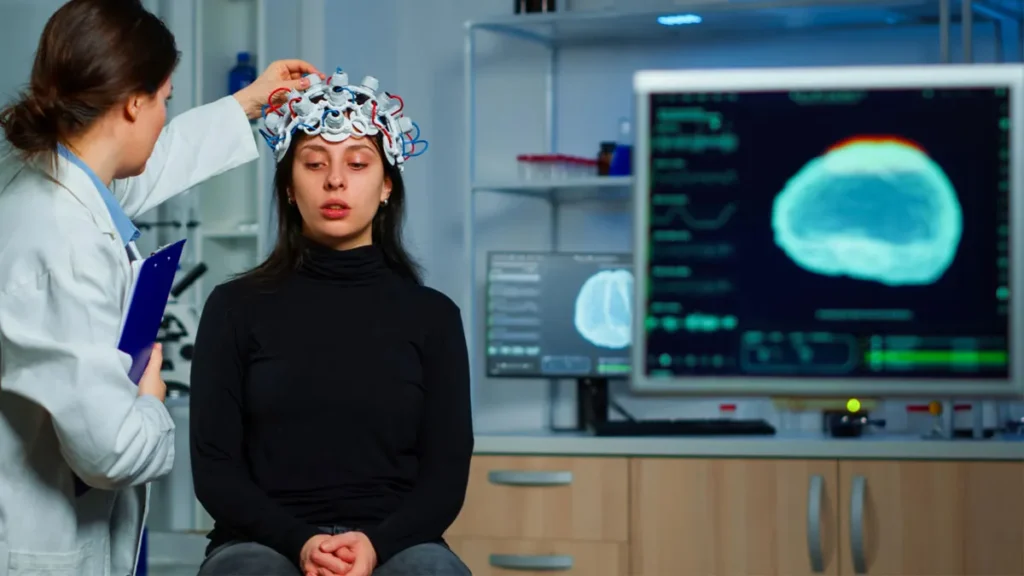
Migraine: what it is, types, causes, and treatments
Is your headache just a normal headache or a migraine? Gather essential information and find out the difference between the two!
Table of Contents
ToggleIntroduction
Headaches are normal, but migraines are not. It’s Chronic headaches cause throbbing pain and pounding, usually on the side of the head. These headaches are extreme and happen occasionally. For those who suffer from them, the pain, nausea, and other symptoms can feel overwhelming and significantly impact the daily lives of affected individuals. It is stated by the National Institute on Health itself that “With proper knowledge and consultations from doctors, you can cure your migraine”.
If you’re suffering from similar migraines or just want to know about them, read this blog to get complete information for prevention and treatment!
What is a migraine?
Migraines are a type of intense headache typically on one side of the head that is caused by sensitivity to light and sound. Unlike regular headaches, migraines can be draining and hard to manage. These headaches can last for hours and even days.
There are many symptoms of migraine, including:
- Throbbing or pounding pain in the one side of the head.
- Nausea and vomiting.
- Sensitivity to light and sounds.
- Visual disturbances like flashlights and blind spots.
- Sensitivity to certain smells.
What are the types of migraine?
- Migraine with aura
Migraine with aura is the classic type of migraine in which the affected person may feel visual symptoms like blind spots or flashlights that migraine is coming.
- Migraine without aura
This is the most common type of migraine in which the affected person does not feel any symptoms beforehand. It occurs without symptoms or aura, such as blind spot flashlights.
- Chronic migraine
Chronic migraines refers to having headaches for at least 15 days per month. This type of migraine is a constant headache that is continued or in episodes of chronic pain.
- Hemiplegic migraine
This type of migraine is rare but may be a worse experience. This migraine causes temporary paralysis or even symptoms like coma or ataxia. Hemiplegic migraine may feel like an emergency as the symptoms are the same as a stroke, but it is important to stay calm as it is not an emergency.
- Vestibular migraine
Vestibular migraine is a neurological condition that causes vertigo, dizziness, and balance issues. This type of migraine is rare and typically the main cause is vertigo. This may cause the affected person to feel dizziness, nausea, etc.
What are the causes of migraine?
Genetic factors: migraine can also be passed through genetics or develop if someone from the family is already suffering from it.
There are many common factors that people often ignore but can be a cause of migraine and should be kept in check:
- Hormone changes: Hormone changes are a primary cause of migraine; the fluctuations of estrogen and other hormones can cause severe migraine. It usually occurs in women during menstruation, pregnancy, menopause, etc.
- Stress: General stress about work, life or relationships can also cause migraines to develop.
- Sleep changes: not getting enough sleep, change in sleeping patterns or irregular sleep routine.
- Physical strain or tiredness: excessive exercise, poor posture, neck or shoulder tension.
- Dietary triggers: Specific foods like citrus fruits, fermented pickles, caffeine or alcohol, etc. also cause migraines.
- Certain medications: Many medications like pain relievers, antidepressants, and others can cause migraines as a side effect of usage.
What is the treatment for migraine?
There are a few types of treatments available for migraine that can significantly ease the migraine symptoms and eventually cure it:
- Medications: There are many types of over-the-counter medications and pain relievers available for migraine symptoms and can significantly help to ease the pain. However, it is important to consult a neurologist and get proper consultations before using any medications.
- Avoid migraine triggers: There can be many things that can trigger symptoms and pain of migraine, like certain foods, odors, or even lights. Avoiding those triggers is effective for affected people.
- Home remedies: Many remedies can improve migraine and ease the symptoms, like:
- Resting in a dark and cool room
- Applying a cold or warm compress on your forehead
- Massage your scalp
- Meditation and relaxing techniques
When to see a neurologist?
It is important to consult a doctor if you notice any symptoms. If you notice some new symptoms, old symptoms worsening, or side effects of treatment, you must immediately inform your doctor and get proper consultations.
Hale Clinics, the home for the best neurologists in Chandigarh, provides everyone with the best treatment and expert advice. Their personalized care and patient-centric approach make them the leading clinic in Chandigarh. Book a consultation now!
Conclusion
Migraine is a complex and serious headache that affects many people worldwide. Understanding the types, causes, symptoms, and treatments of migraine can help individuals lead better lives and manage the condition effectively. Whether through medications, therapy, meditation, or other treatment options, it is important to consult your doctor for personalized treatments that are most effective. While the condition is not curable, we can improve our quality of life while treating and managing it.
FAQs
WQ1: hat is migraine?
Ans: Migraines are a type of intense headache typically on one side of the head that is caused by sensitivity to light and sound.
Q2: What causes migraines?
Ans: Migraines can be triggered by stress, certain foods, hormonal changes, or genetics.
Q3: What’s the difference between a migraine and a regular headache?
Ans: Migraines are usually more intense and come with additional symptoms like nausea and sensitivity to light.
Q4: Can certain foods trigger a migraine?
Ans: Yes, foods like chocolate, cheese, and alcohol can trigger migraines in some people.
